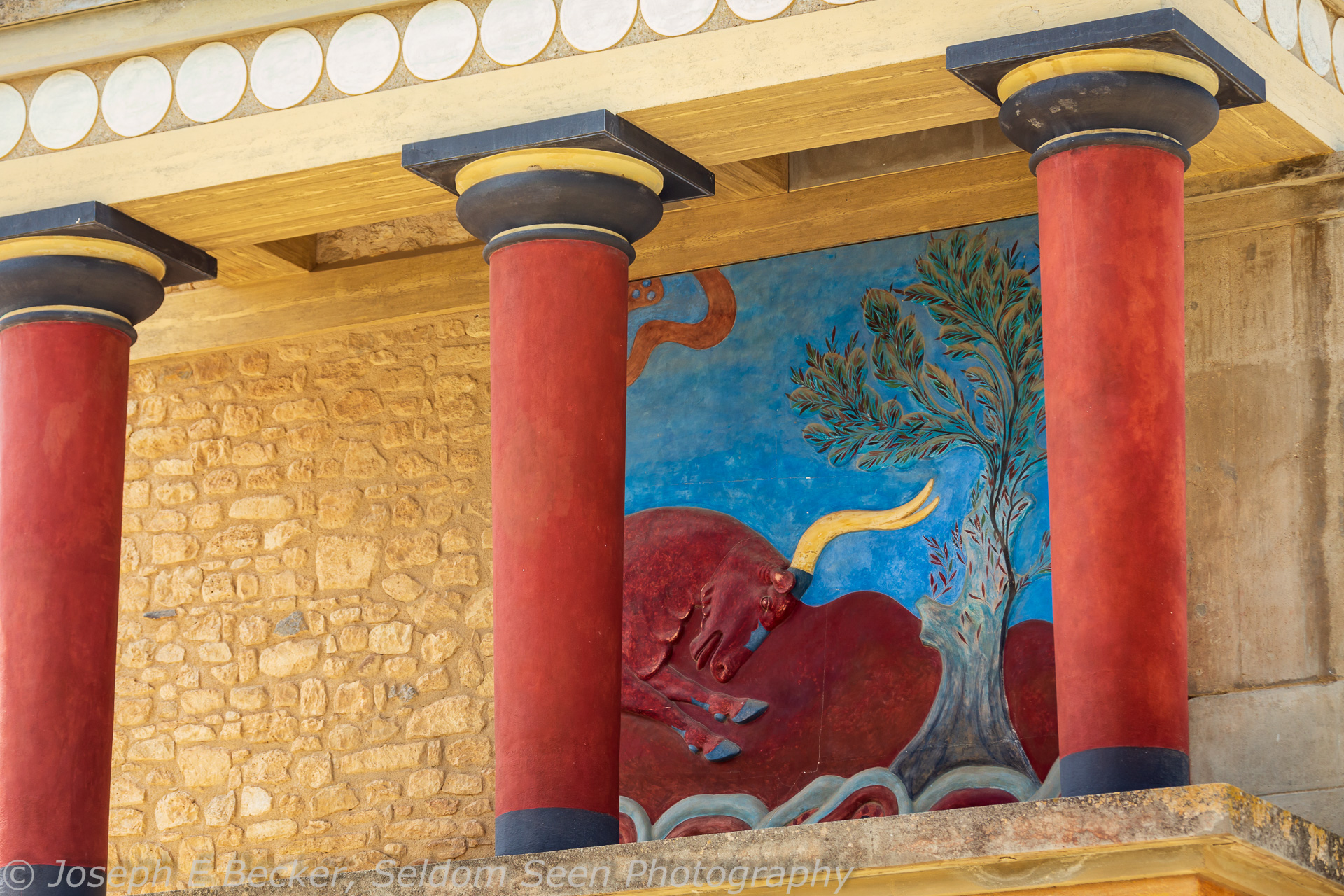 The Palace of Knossos is the capital of ancient Minoan Crete. It is reportedly Crete’s most popular tourist attraction. Ancient ruins, particularly popular ones, present a photographic challenge, at least to me. We see photographs of the ruins in guidebooks and on postcards and want to get similar shots. Yet, often the sites are only have limited hours that do not correspond with the best light and are usually overrun by tourists. How to get a few decent shots without obtaining special access (like the photographers whose images you see on the postcard)?
The Palace of Knossos is the capital of ancient Minoan Crete. It is reportedly Crete’s most popular tourist attraction. Ancient ruins, particularly popular ones, present a photographic challenge, at least to me. We see photographs of the ruins in guidebooks and on postcards and want to get similar shots. Yet, often the sites are only have limited hours that do not correspond with the best light and are usually overrun by tourists. How to get a few decent shots without obtaining special access (like the photographers whose images you see on the postcard)?
Knossos is the perfect example. When Tanya and I were there, the last admittance of the day was at 3 p.m. We got there about 2:30 p.m., and I was hoping the crowds would be a bit less. However, as it turned out, we picked International Monuments Day (April 18th) to visit – the good news, free admission; the bad news, more people. It wasn’t overrun with tourists, but there we weren’t alone either. Further, 2:30 p.m. is not a prime time for photography, the light is harsh and contrast can be a big problem.
And you can forget about using a tripod. Even if it would not cause a problem with the crowds, tripods (and large professional cameras – whatever the definition of that is) are not allowed. This is a common policy at many historical sites and museums (occasionally I’m surprised and they are allowed, such at the Met in New York and in the Notre Dame Basilca in Montreal).
So what is your average photographer to do? Here are a few tips I’ve discovered that help me photograph at ancient ruins (and other popular sites).
1. Use a telephoto zoom lens – if you don’t want people in your shots, you will need to zoom in to crop them out. A wide-angle lens is good for providing a big scene, but it is almost impossible to use one and not have people in your image.
2. Shoot details – sure shoot an image with the whole building, but if you want to not have people in the shot, shoot details.
3. Don’t crop too tightly in camera – often you will not have the best vantage point to take a shot. If you think you might be making perspective adjustments Lightroom or Photoshop, don’t crop too tightly in-camera. Leave some room to crop after the perspective adjustment is made.
4. Avoid sky when shooting into the sun – we often don’t have much choice about time of day when visiting a historical site, and that scene you’ve been dreaming about shooting is toward the sun. Cut out the sky to avoid the contrast. For example, one of the most common shots you will see of Knossos is similar to the featured shot above, except that it usually shows some sky as well. Here, shooting toward that sun, I cut out the sky to avoid bad contrast and a totally white sky.
5. Shoot in the shade – again, not having much choice about time of day, shooting in mid-day can cause lots of contrast problems. Look for compositions that are in shade and avoid the contrast of partial sunlight.
6. Up your ISO – often you will be shooting not out in the sun, but in a dimly lit rooms or grottoes. Without a tripod, remember to increase your ISO.







Leave a Reply